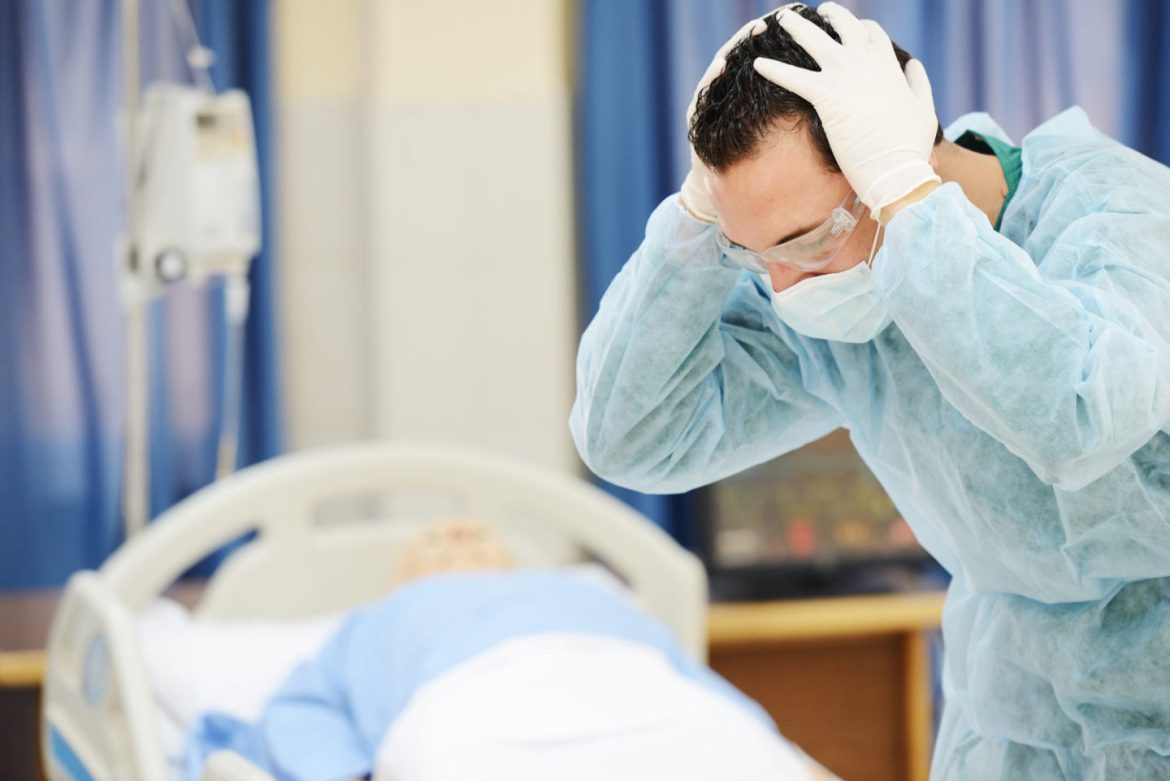If you are a doctor (or med student/health professional) and are human, you’ve probably made a medical mistake.
You’ve probably not received emotional support for the mistake.
Maybe you’ve never told anyone about a mistake that still haunts you today.
The truth is that almost all physicians have admitted to medical mistakes sometime in their careers.
Depending on the patient outcome, many doctors carry the distress of medical errors for months, years, even a lifetime.
Some may even develop PTSD.
If you’ve experienced anxiety, depression, guilt, loss of confidence or were haunted by intrusive thoughts in the aftermath of a medical error, you are normal.
In fact, you’ve had second victim syndrome — a real condition that describes the psychological trauma a physician (or health professional) experiences as a result of an error.
Even highly-skilled specialists suffer in isolation with grief, shame, and guilt after a medical mistake.
Top 3 ways NOT to respond to a medical error:
1. Do not die by suicide.
There are several physicians who have taken their own lives in the aftermath of making even a minor medical mistake.
Do not kill yourself.
Call someone.
2. Do not respond with self-abuse.
Do not take the patient’s chart home to punish yourself by obsessing on your mistake over and over again for years to remind yourself that you are not as smart as you think you are.
Do not allow a mistake to overshadow your years of excellent care.
3. Do not wait decades to share your trauma.
Speak about your medical error to someone. Don’t deal with this by yourself.
Top 5 ways to respond to a medical error:

1. Talk about your mistake.
The most important thing you can do after a mistake is to talk to a trusted colleague (not a spouse, not even a nonphysician).
If possible, choose someone within your specialty who understands innately your experience.
Your conversation should be 100% confidential.
You deserve psychological support.
The sooner you talk, the better.
Do not isolate.
2. Forgive yourself.
Avoid self-punishment by recognizing that you can not be a perfectionist in an imperfect world.
You are human.
You have often been subjected to hazardous working conditions, even human rights violations in medicine involving sleep deprivation and overwork.
3. Have faith.
No matter what your spiritual or religious beliefs are, it is important to realize that there is a force greater than us in this world.
As long as you tried your best under the circumstances and were not malicious in your actions, please do not punish yourself.
4. Love your imperfections.
Perfectionism is impossible to achieve.
Be vulnerable and admit when you need help.
You are human.
Embrace your humanity.
Have self-compassion and teach your colleagues to do the same.
5. Become an expert.
Your most difficult medical cases teach you the most.
Honor your patient by learning how to prevent future errors.
Accept your error and grow professionally.
Reframe your mistake as a positive teaching moment for your team and help other doctors prevent similar mistakes.
Be a voice of inspiration and education for others.
You can not only survive a medical mistake; your mistake can make you a better doctor.
Above all, please don’t give up on yourself or your career.



